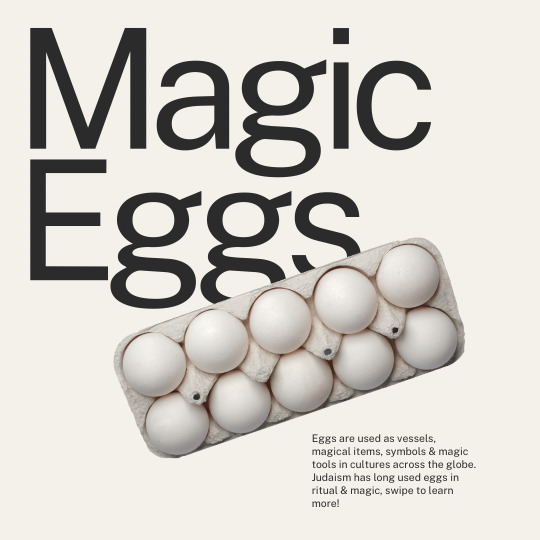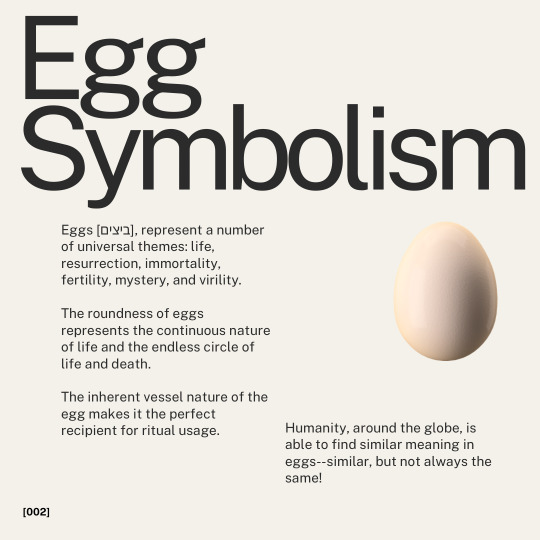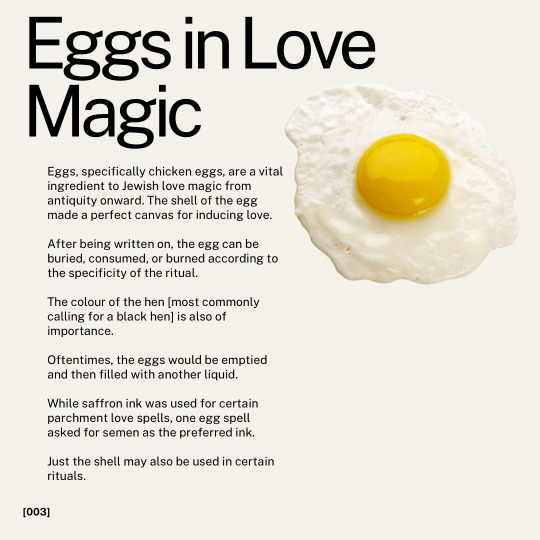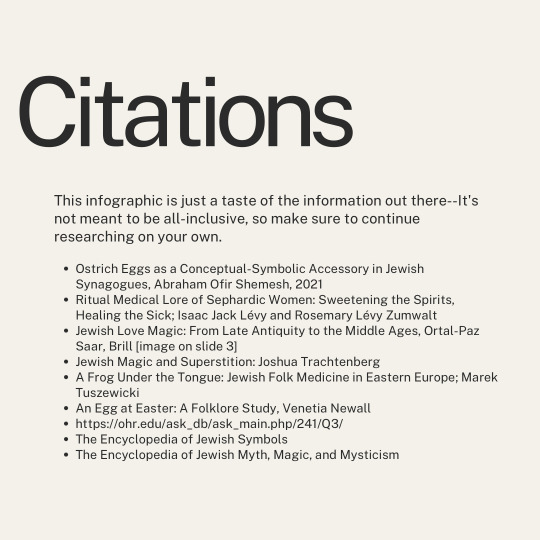#Jewish practice
Text
Not "shake a lemon angrily at G-d" week, but rather;
Gather a citron, an ancient fruit predating the cultivation of lemon. Notice how it has a wonderful aroma, and consider how its flesh is edible. This represents the Jew who is both learned in Judaism and who exhibits kindness and good deeds.
Now gather the closed frond at the center of a palm tree. Consider how sweet the dates of the palm taste, but how the frond exhibits no strong smell like the citron. This represents the Jew who is learned in Judaism, but who does not practice the compassion in the many texts they studied.
Now gather at least three branches from a myrtle bush. Take in the refreshing scent oozing from the branches' thick leaves, but see how it does not bear fruit. This represents the Jew who is not learned in Judaism, but whose good character and actions are exceptional.
Finally, gather two branches from the somber willow. While mighty and enveloping, the willow exhibits no strong aroma, nor does it produce fruit. This represents the Jew who is neither learned in Judaism nor kind in character and deeds.
Appreciate the various textures and shapes of these four species. Feel the weight of them in your hand. Value how different in so many aspects each of them are.
Take them all in your hands, and bind them together like an embrace. Point them in all the corners of the earth- South, North, East, heavenward, downward, and West. Think of all your Jewish brethren scattered around the world, and bring your precious bundle back to your heart with every direction you send it to. Contemplate the place of every Jew in your community, the Etrog, the Lulav, the Hadas, and the Arava, for they all belong.
This is the meaning of Sukkot: coming back to our roots and our bare essence. Erect a temporary dwelling in reminiscence of your wandering ancestors. Come together under the stars, as exposed and unguarded as when we first walked the earth. Welcome guests into your makeshift home, be they family, friends, or the spirits of founding ancestors passed. Surround yourself in your community- and bring it all back to your heart.
#jumblr#judaism#if jew know jew know#sukkot#lulav#lulav and etrog#arba minim#the four species#jewish practice#Jewish belief#jewish community#midrash
1K notes
·
View notes
Note
re: your comment about the misinterpretation and misuse of "tikkun olam" by non-Jews, could you please explain what it *does* mean? I've heard that it roughly translates to repairing the world (like with Rabbi Tarfon's "it is not your duty to finish the work, but neither are you at liberty to neglect it"), but idk if that's what it actually is or not (sorry if any phrasing is weird, i've been awake for way too long today)
Your understanding is correct.
It does mean repairing the world. This means doing charity and choosing kindness whenever possible and generally doing small and large things without recognition in order to leave the world better than you found it. Plant a tree. Read at a nursing home. Save all your loose change for ten years then donate that amount to a cause you care about. Make kindness that helps others heal a part of your daily practice. This is tikkun olam.
I have seen bigots who consider themselves progressive try to goysplain tikkun olam as Jews attempting to impose their idea of perfection on the world around them and that we use it to justify violence. I have seen people say that Jews consider the bombing of Gaza and Rafah to be the ideal practice of tikkun olam. And it is a blatantly and horrifically false and disingenuous to say this. Tikkun olam is my absolute favorite aspect of my faith. I wake up and choose kindness and peace every single day and have since I learned about this concept. It is not always easy, but it is always worth it.
And to see others pervert it into something violent and to associate that violence as synonymous with Jewish religious ideology is truly one of the most painful things I’ve experienced in this conflict and one of the most bigoted things I’ve experienced in my life.
669 notes
·
View notes
Text
2 notes
·
View notes
Text

[image description: the bugs bunny in a tuxedo "I wish all a very pleasant evening" meme edited to say "I wish all of my Jewish followers a very pleasant passover". Next to bugs is a photo of a small stack of matzo and the cup of Elijah. ]
#LIKE I WOULD FORGET THIS ONE HA#Happy passover guys!!!#jewish#jewish holidays#jumblr#Passover#Pesach#I hope the image description is good I don't have a lot of practice doing em :"))
47K notes
·
View notes
Text
Harley: Happy Hanukkah, Brucie!!! Here's your present :D Do you like it? I hope it’s the right size.
Bruce, openly weeping as he holds up an I am Kenough hoodie: It's fine.
#also bruce two seconds later: btw how did you get into my house?#Alfred let her in#they’re both Jewish and I will take NO CRITICISM#Harley went to Hebrew school n everything and Bruce is non-practicing#battinson#bruce wayne#batman#the batman 2022#batman 2022#the batman#dc universe#dc#harley quinn#harleen quinzel#hanukkah#happy holidays
2K notes
·
View notes
Text
Genuine question, do you believe messianic Jews are valid? Do you believe they are not just Christians? I am a messianic Jew, and it’s actually a long story on how my family ended up this way, but I don’t feel like dwelling. I saw one posts that said messianic Jews were just Christians who appropriated Jewish practices, and tried to trick Jews into following Jesus. I obviously don’t believe that is true, but please give me your opinion.  
#jewish#jublr#jesus#jewblr#Jewish question#messianic#messianic Jew#genuine question#christianity#jewish people#Jewish practices
763 notes
·
View notes
Text
I am about to state an unpopular opinion. I want to say first! I am in no way against the Jewish practice or people in any way, and am only against the circumcision practice. I genuinely believe that it is inappropriate for an adult to circumcise an infant in the name of a covenant with god, when the infant can in no way consent or understand. I believe that if circumcision is to be part of the Jewish practice, then it should be part of the movement into adulthood within the practice.
Edited to add: please note, I am against all forms of infant circumcision, as well as forcing any religious practices on infants, I'm also against infant baptism
0 notes
Text
Listen. LISTEN, the longer I spend in the academic world, I am more convinced that describing Judaism and Jews as a religion/ethnic grope/ethnoreligion is unhelpful outside of Academic circles.
The best way to explain Judaism is using the tribe model. A lot of times Judaism is a community first and a religion second, i.e., your level of religiousness is rarely a thing that alienate you from the community.
Think of other tribes, like the Sámi, Aboriginal Australians, Māori, Yurok, Inuit ect. Each have their own unique religion, but we do not think of them as a religious group, because the tribal identity is more important, and the religion is considered part of the culture, not the opposite.
IMORTANT SIDENOTE: I am aware that many of those tribes, and other tribes have a big chunk of Christians in them, usually more Christians than those who follow the indigenous religion of the tribe. BUT for the sake of discussion, I am equating Judaism to the section that does follow the indigenous religion of the tribe.
So, despite the fact that the religious structures of Judaism is very integral to Judaism, it is partly because of the community based focus of Judaism. The most basic example is the Minyan, the fact that prayer is preferred to be done in a group. Or the fact that the Sader is meant to be a celebrated in a group. and so on.
SO, ethnoreligion is a great academic term, but for outside that world? A tribe is a much better term to explain Judaism.
#jumblr#judaism#ethnoreligion#the problem of using academic terms outside academia is that they require the ACADEMIC CONTEXT#and I found that presenting Jews as a tribe makes a lot of the comparison to Christianity go away#and helps explain the solidarity a lot of Jews find toward other indigenous tribes#because we have a lot in common#the Jewish tribe is just far more spread out than most tribes#yes#this is an oversimplification#but sometimes you have to do it in order to get the point#Judaism is a closed practice#just like the faith of many other tribes
1K notes
·
View notes
Text
If you're not Jewish but you want to write a Jewish character, here's a bit of advice:
For the love of God, stop sending asks to random Jews on Tumblr for tips on how to write a Jewish person instead of taking the time to do your own research. I get this ask several times a month. If you don't know anything about Jews or Jewish culture, put the time and effort into researching it or don't write a Jewish character.
Relying on strangers who just happen to be Jewish, who don't know anything about what you're writing and how you're going to use this information, to essentially boil down our culture that has 3,000+ years of history (not to mention the fact that there are so many ways to be Jewish) is a lot of pressure on someone, and it's lazy. You are inevitably going to get it wrong if you are just relying off of Jewish people on tumblr to tell you how to write us.
#jumblr#judaism#jewish#jewblr#jew tag#j tag#hinda kvetches#i want to stress there is no singular jewish practice there are SO MANY WAYS TO PRACTICE#it makes the jewish person you asked feel responsible for whatever representation you end up writing
883 notes
·
View notes
Text
everyone is just so so dumb when it comes to jews
#gentiles really just don’t understand us our history our beliefs our practices#and they don’t want to#because then they’ll have to realize their hatred of us is bad and wrong#jumblr#Jewish#antisemitism
389 notes
·
View notes
Text


I am currently detained in an Israeli jail, the result of refusing to attend or cooperate with criminal charges laid against me and two others for joining Palestinian protests in the West Bank against Israel’s colonial rule. Because I am an Israeli citizen, the proceedings in the case are held in an Israeli court in Jerusalem and not at the military court, where Palestinians are tried.
It has been almost nine years since the last time I was incarcerated for more than a day or two. Much has changed since. Politically, reality does not even resemble that of a decade ago, and none of the changes were for the better.
Politically, the world seems to have lost much of its interest in the Palestinian struggle for liberation, placing Israel at one of the historical peaks of its political strength. I am in no position to discuss the profound changes within Israeli society and how even farther to the right it has drifted. Israeli liberals are much better suited for such a task, because they hold their country dear and feel a sense of belonging that I cannot feel and do not want to feel.
Personally, I am older, more tired and, mostly, not as healthy as I was. Of course, the price I have paid for my part in the struggle is a fraction of that paid by Palestinian comrades, but I cannot deny its subjective weight on me: from physical injuries, some irreversible, through sporadic despair, anxiety and sense of helplessness, to the encumbering sensation of loss and the presence of death – and the grip all these have on my day-to-day life. And yet, the more things change, the more they stay the same. Right now, just as it was back then, sitting in prison is better than any other alternative available to me.
The legal fallacies that riddle the case against us are of little significance. While it is fair to assume that had I agreed to cooperate, the trial would have ended up with an acquittal, my refusal to recognize the court’s legitimacy is based on two main grounds.
The first is that my Palestinian comrades do not enjoy the luxury of being tried in the relatively comfortable conditions of the Israeli courts. Rather, they are tried as subjects in the parody of a legal system that are Israel’s military courts. Unlike me, Palestinians do not have the option of refusing to cooperate with their captors, since the vast majority of them are tried while remanded into custody for the duration of their proceedings.
Additionally, the punishment Palestinians are faced with is significantly harsher than that specified in Israeli law. Thus, in this regard as well, despite refusing to recognize the court’s legitimacy, the price I am likely to pay is significantly lower than that paid by my comrades.
The second, more fundamental ground to refuse to cooperate is that all Israeli courts, military or otherwise, lack any legitimacy to preside over matters of resisting Israeli colonial rule, which employs a hybrid regime, ranging between a distorted and racially discriminatory democracy in its sovereign territory and a flat-out military dictatorship in the occupied territories.
Faced with the tremendous shift to the right in Israeli politics, the shrinking remnants of the Zionist left – once the country’s dominant elite group – are consumed by lamenting the decline of Israeli democracy. But what democracy is it they wish to defend? The one that has dispossessed its Palestinian citizens of their lands and their rights? The one that, at best, views these Palestinian citizens as second-class? Perhaps it is the democracy that governs the Gaza Strip through vicious siege while it reigns as a military dictatorship in the West Bank?
Despite the obvious nature of the Israeli regime, Israeli liberals are not willing to contest the fundamental premise of internal Israeli discourse and acknowledge that the State of Israel simply is not a democracy. Never was.
To join the fight to topple Israeli apartheid, the few Jewish citizens of Israel willing to do so will first have to recognize that they are overprivileged and be willing to pay the price of relinquishing that status. An open rebellion against the regime has been taking place for decades, carried out by the Palestinian resistance movement. The price paid by those involved in it is immense. Jewish citizens of Israel must cross over and walk in their footsteps.
#anti-colonialism#anti-prison#Israel#Jewish anarchism#anarchism#climate crisis#climate change#resistance#autonomy#revolution#ecology#community building#practical anarchism#anarchist society#practical#Jonathan Pollak#practical anarchy#anarchy#daily posts#communism#anti capitalist#anti capitalism#late stage capitalism#organization#grassroots#grass roots#anarchists#libraries#leftism#social issues
64 notes
·
View notes
Note
Hello! I do hope this doesn't come off too presumptuous, but looking through your blog, you seem like the kind of chap who'd be able to answer my question better than the hodge-podge Google's been throwing at me
I was raised by Messianic "Jewish" parents (not Jews, just Christians stealing your traditions and holidays, but I'm sure you're familiar), and now that I've left Whatever That Faith was, it's become more and more obvious to me how much my parents basically just forced Christian Doctrine onto Jewish tradition.
Anyway, when I was a kid, I was taught that the reason people fasted on Yom Kippur was so that in denying our bodies of sustenance, we would learn to more fully rely on God, with an added bonus of: we're supposed to be too guilty for our sins to eat on Yom Kippur. To me that feels very Christian, specifically extremely Baptist.
So my question for you would be: Is that actually why Jewish people fast on Yom Kippur? Or is there a different reason?
First off, I applaud you for recognizing the problematic environment you were raised in and doing the work to educate yourself. That takes a lot of courage and strength and I'm proud of you.
You may notice that in Judaism, we rarely agree on anything, so I'll talk about three reasons.
One of the main reasons I was taught for fasting on Yom Kippur was to remove any distractions so that we can focus purely on reflecting on the past year and working towards bettering the new year and ourselves. If it was about suffering, then people who medically or psychologically cannot fast would be commanded to fast anyway, when in reality it is forbidden to fast if you physically cannot. In fact, we are commanded to eat a lot the day before Yom Kippur so that we don't suffer while fasting. Yom Kippur has a lot of additional prayers, and so we really end up spending most of the day and night before in synagogue, and don't really have time to eat, anyway. Essentially, we're supposed to "hyperfocus" in a sense on our spiritual reflections of that the day.
Fasting isn't the only commandment of Yom Kippur- we are also commanded to refrain from excessive annointing or bathing (in modern applications- don't shower, don't use skin creams if you don't have to, don't have a foot bath, etc), sexual intercourse, wearing leather shoes, and more also don't wear jewelry. This is in line with the commandment to "afflict" one's soul on Yom Kippur, which actually isn't the same as the Christian idea of affliction- we're not supposed to be in pain or suffering, but rather just depriving ourselves temporarily of certain pleasures or desires so that we can focus on a more spiritual mindset that is unique to Yom Kippur.
There is another interpretation of why we fast which is so that we become more akin to angels. Angels are entirely spiritual beings whose entire purpose is service of G-d, and many interpret the different rituals of Yom Kippur as attempting to emulate angels. We pray a lot of Yom Kippur prayers standing (if we're able to) with our feet and ankles together to mimic the appearence of angels, who do not have legs or any lower-body but rather "stand" as a column. We do not eat or have sexual intercourse or bathe or anoint because angels do not need to and are even unable to engage in such actions. We wear white to appear like angels. And because angels don't have free will and are therefore incapable of sin, they have nothing to be forgiven for, and therefore in this way we may encourage G-d to see us as angels and see us as blameless.
Some more reading:
Why Fast on Yom Kippur?
Yom Kippur Customs and Rituals
Yom Kippur Fasting
#jumblr#halakha#yom kippur#judaism#education#fasting#jewish practice#jewish culture#jewish education
203 notes
·
View notes
Text
Hey Jews of Tumblr!
What's your favorite Jewish practice? This can be anything, whether it be a mitzvah that you find really important, a holiday practice, a Jewish value, etc.
Personally I like the fact that we are encouraged to question everything. I don't like taking things at face value and need to understand them, which is why I appreciate not only the acceptance, but also the encouragement of questioning things.
Goyim, do not respond. Those in the conversion process are welcome!
315 notes
·
View notes
Text
2 notes
·
View notes
Text
as the holidays come to a close, i'm left to wonder....
how does religion work in the pjo universe?
#pjo#percy jackson#percy jackon and the olympians#percy series#pjo series#pjo tv show#pjo hoo toa#pjo fandom#percy pjo#annabeth pjo#like i know rick riordan is a white goyische man#so he probably didn't think this through and just assumed that they all celebrated Christmas culturally#but how does religion play in the pjo universe#even if you're like christian do you just leave religion when you come to camp#like i understand that most kids are pretty irreligious and probably won't care about leaving religion#but as someone who went to religious school there's at least one kid who is devout as fuck and'll just keep practicing#also like plenty of religions practiced today are the same age as the ancient greek religion- ex. judaism and hinduism#how does that clash work-there were exchanges of jewish and hindu culture in the ancient greek era so it's safe to assume jewish and hindu#half-bloods would exist#also on the hindu can of worms- we are also a polytheistic religion#does belief in that renounce any connection to the greek gods#also the comedic potential of the clash in SO underutilized#i can see luke at some point just scraping the food into the hermes fire saying 'accept my offering- o g-d who is NOT greek'#or some other camper reciting the brahmarpanam or offering Du'a while offering food to the gods#you can't tell me at least one kid yelled up at the sky 'well i'm converting now! fuck you dad!'
92 notes
·
View notes
Text









There’s magic surrounding us and there is nothing quite like learning about how our ancestors turned ‘every day’ ingredients into integral parts of ritual. From fertility and love to sewing discord and creating hate, eggs have been vessels for magic in Judaism for centuries. Learn about the various forms of usage of eggs in folk magic and practices in Jewish communities.
But Judaism isn’t alone in utilizing eggs—Certain egg symbolism transcends the borders of culture and are nearly global concepts. Eggs as symbols of resurrection, immortality, life, and rebirth: these are cross-cultural beliefs that exist in many different communities and cultures, so you may see things that resonate with you, even if you’re not Jewish!
Have you witnessed or performed magic with an egg? What rituals with eggs exist in your community? And, of course, do you dip your eggs in ashes?
#jewish#jewitches#judaism#jumblr#jewitch#jewish magic#witchcraft#magic#eggs#egg#egg magic#folk magic#folk practice#folk tradition#witchblr
282 notes
·
View notes